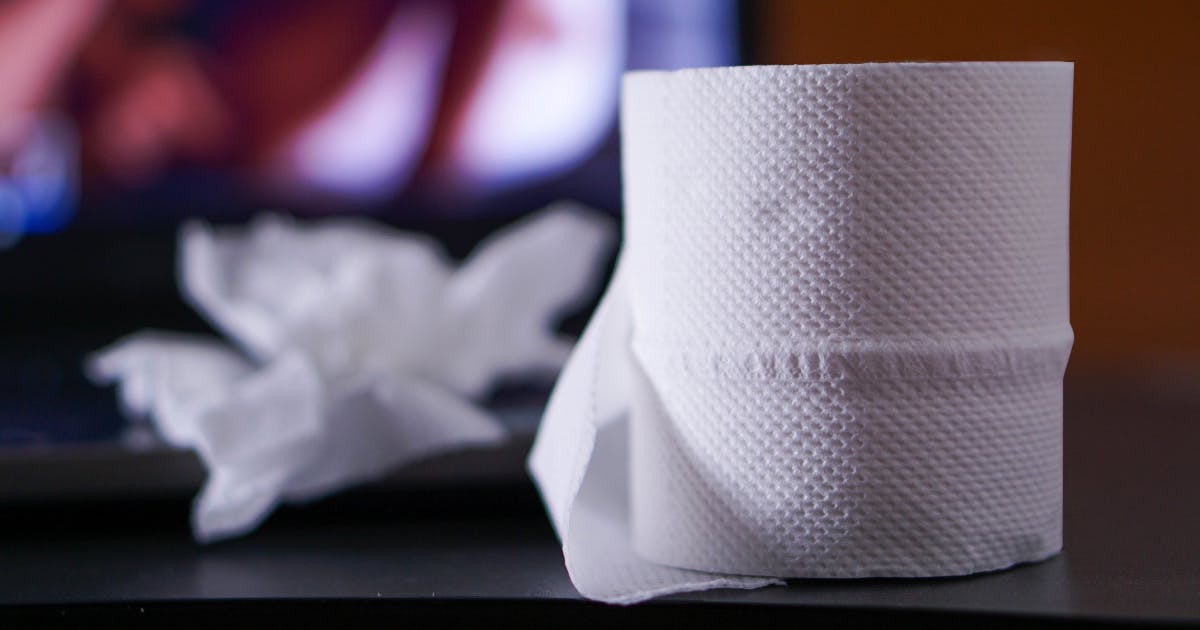Premature ejaculation is prevalent among men, yet misconceptions about it are just as widespread. For instance, some men fear that masturbation may trigger rapid ejaculation. Does masturbation cause premature ejaculation, and what can men do if either is wreaking havoc in their lives? This article provides much-needed clarification on masturbation, premature ejaculation, and male sexual health.
An Overview of Premature Ejaculation
Premature ejaculation occurs due to a lack of control over the ejaculatory reflex. Simply put, semen is released prematurely or too quickly. Medical providers typically diagnose premature ejaculation if a man ejaculates in less than three minutes of sex. However, it is still considered premature ejaculation if it happens against one’s will.
Premature ejaculation often occurs during sexual intercourse, but it can also be triggered without penetration. While it’s true that premature ejaculation will not put you in mortal danger, it can still cause harm by damaging self-esteem and acting as a catalyst for relationship issues. It’s vital to seek treatment for premature ejaculation if it’s becoming disruptive in your life.
Masturbation and Sexual Health
One misconception about male sexual health is that masturbation causes premature ejaculation. There is no clear evidence that masturbation directly causes premature ejaculation. If anything, research suggests that masturbation is beneficial, as it triggers the release of feel-good hormones that lower stress. Studies also show that masturbation reduces the risk of prostate cancer.
Here are some of the benefits of regular masturbation:
- Reduction of tension – The orgasm resulting from masturbation can relieve both physical and emotional tension. Muscles relax after masturbation, and serotonin helps regulate mood.
- Pain relief – Endorphins, one of the hormones secreted during masturbation, are the body’s natural painkillers. Some women masturbate to help lessen menstrual pain.
- Better sleep quality – Masturbation can also help promote sleepiness, with some studies showing higher sleep quality. If you’re struggling with a disrupted body clock, try masturbating an hour before bedtime.
- Improved focus – Dopamine, the reward hormone, is released during masturbation. Dopamine is linked to learning, memory, and motivation, and some people masturbate to boost productivity.
- Enhanced mental health – Masturbation is a natural way to trigger neurotransmitters and hormones that combat depression and anxiety. Unlike medication, masturbation has no side effects.
Can Excessive Masturbation Cause Premature Ejaculation?
Men may ask, “Does frequent masturbation cause premature ejaculation?” as masturbation can also become problematic in excess. The quick answer is no. Excessive masturbation does not cause premature ejaculation. Instead, it’s more likely to cause delayed ejaculation, as a man might become desensitised to physical stimulation if he masturbates too often. If he experiences premature ejaculation while masturbating, other factors are probably involved.
Premature ejaculation can be caused by the following:
Erectile Dysfunction
Men may develop premature ejaculation in response to erectile dysfunction. Due to a fear of losing their erection, they might get accustomed to ejaculating as quickly as possible. Note that even without an erection, a man can still masturbate and reach orgasm. So, if he already has erectile problems beforehand, this may increase his risk of premature ejaculation. Men with sexual issues also often turn to masturbation to meet their physical needs, fearing an adverse reaction from a sexual partner.
Hormonal Imbalance
Some hormones essential for male sexual function are oxytocin, testosterone, prolactin, luteinizing hormone (LH), and thyroid-stimulating hormone (TSH). A deficiency or excess in any of these can lead to sexual dysfunction. Research shows that oxytocin can stimulate the ejaculation process, which is why oxytocin inhibitors are currently being explored as a potential treatment for premature ejaculation. Meanwhile, low levels of testosterone, LH and TSH are associated with a higher risk of premature ejaculation.
Depression
Depression is associated with a lack of neurotransmitters called serotonin and dopamine, both of which are heavily involved in maintaining ejaculatory control. This is why selective serotonin reuptake inhibitors (SSRIs) are prescribed for men suffering from premature ejaculation. The emotional instability caused by depression can also trigger anxiety and stress, which are other causes of premature ejaculation. Additionally, a man may feel the urge to masturbate to cope with depression, as orgasm releases feel-good hormones, including serotonin and dopamine.
Performance Anxiety
If men are worried about their sexual performance, they’ll find it harder to focus on withholding ejaculation. The more they panic, the more they lose control over themselves, including their ejaculatory reflex. This condition is called performance anxiety. Performance anxiety can stem from a lack of experience, poor body image, low self-esteem, or nervousness with a new partner. To avoid discomfort, men may turn to masturbation and avoid partnered sex. For men in a committed relationship, this often causes insecurity in their partner and, as a result, relationship problems.
Stress
When men are stressed, they might tense their pelvic muscles, which can activate the ejaculatory reflex. This is why being relaxed and mindful is essential during sex. Note that cortisol, the stress hormone, also inhibits testosterone, which is needed for normal sexual function. While it’s usually done because a man is aroused, some men masturbate to relax. However, their stress levels are usually high before they reach orgasm, so they may experience premature ejaculation. In this case, it’s crucial to understand that stress, which can cause PE, was already present before masturbating.
Relationship Problems
Relationship issues can trigger other causes of premature ejaculation, such as stress, performance anxiety, and depression. Unresolved disagreements often lead to chronic stress, which can cause mental disorders and physical ailments. Similarly, excessive masturbation and premature ejaculation can also cause relationship problems, locking a man into a cycle of interpersonal conflict and poor sexual health. Partners may not be understanding of a man’s sexual dysfunction, especially if they lack effective communication. This often worsens premature ejaculation until the couple seeks counselling and the man receives proper treatment.
The Dangers of Excessive Masturbation
Although frequent masturbation does not directly trigger premature ejaculation, it can harm sexual health in other ways, complicating any sexual dysfunction a man may already have. Please note that masturbation is generally safe. But anything done ‘too much’ can cause abnormalities in your life.
Here are some of the negative impacts of excessive masturbation:
- Low Productivity – Men who chronically masturbate may end up too tired to complete their tasks. As a result, they may neglect their responsibilities, leading to a backlog that increases their anxiety, which, in turn, may increase their frequency of masturbation.
- Neglected Health – Another area that men may neglect is their health. They may skip exercise because they feel sleepy, or they may disrupt their body clock by taking too many naps throughout the day after masturbating.
- Social Withdrawal – Men may also end up ignoring their partner, especially if they feel guilty about masturbating. It can also cause them to miss appointments with others, leading to strained friendships.
- Relationship Difficulties – As mentioned previously, masturbation can lead to relationship problems, particularly if it causes a man to withdraw from his partner and neglect their sexual needs. If left unaddressed, excessive masturbation can eventually result in a breakup or divorce.
- Reduced Sexual Pleasure – Men may eventually develop a tolerance for physical stimulation, making it harder to reach orgasm during partnered sex. This can worsen if excessive masturbation is combined with porn addiction.
- Irritated Penis – Rubbing the penis too much or too hard can cause injury. Though the risk is low, if you’re not careful, you might accidentally develop Peyronie’s Disease, which results from scarring in the penile tissues. This can trigger erectile dysfunction, which may cause premature ejaculation.
- Declining Mental Health – Masturbation can stir negative emotions like guilt and shame. Since men who frequently masturbate tend to do so to cope with emotional issues, their excessive masturbation may worsen. Please see a psychologist as soon as possible if your compulsion to masturbate is affecting your life.

Using Masturbation to Manage Premature Ejaculation
Masturbation can be beneficial if you don’t go overboard with it. You may even be able to use it to overcome premature ejaculation. You can train yourself to last longer by practising the start-stop technique and the squeeze technique as you masturbate. You can also adjust your masturbation to help you acclimate to physical stimulation.
However, if masturbation and premature ejaculation are causing you distress, it’s time to seek professional help. Book an appointment with our team if you’re dealing with untimely ejaculation and weak erections. No man should feel as though he has no control over his sexual function. Our doctors will gladly help you rehabilitate your sexual health so that you can live your best life!





